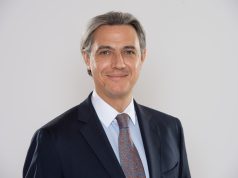Animal minds started with bacteria orienting themselves towards food sources. What are the youngest parts of human minds? Reason, the will to find reasons for everything, including the reasons hyenas may have to act the way they do.
Speaking of hyenas, officially speaking, less than 100 individuals own more property than half the population of the entire planet combined. And the truth is way worse.
A particularly odious subset are the money changers. Here is Krugman in “Now That’s Rich” finally waking up to the nefariousness of Finance Supreme. After extensively relating Krugman’s belated coming of age, not to say wisdom, I will take off in the last few paragraphs, with the really big picture.
F<
Krugman fired a broadside against hedge funds mangers, where the ugly splurge at the trough of conspiracy unchained. It is such a pleasure to have Krugman focus finally on what I have attracted his attention about, for years, that I will quote him extensively. He does not say anything I did not say in substance, say 6 years ago, but he has an incomparably louder and more respected voice:
“Institutional Investor’s latest “rich list” in its Alpha magazine, its survey of the 25 highest-paid hedge fund managers, is out – and it turns out that these guys make a lot of money. Surprise!
Yet before we dismiss the report as nothing new, let’s think about what it means that these 25 men (yes, they’re all men) made a combined $21 billion in 2013. In particular, let’s think about how their good fortune refutes several popular myths about income inequality in America.
First, modern inequality isn’t about graduates. It’s about oligarchs. Apologists for soaring inequality almost always try to disguise the gigantic incomes of the truly rich by hiding them in a crowd of the merely affluent. Instead of talking about the 1 percent or the 0.1 percent, they talk about the rising incomes of college graduates, or maybe the top 5 percent. The goal of this misdirection is to soften the picture, to make it seem as if we’re talking about ordinary white-collar professionals who get ahead through education and hard work.”
In truth, the concept of “hyena” comes short as an insult: hyenas are ecologically useful, they are part of the balance of a super-organism that evolved over the eons, part of which is simple grass, that herbivores ought not to eat too much.
Money changers, though, have no ecologically utility. Quite the opposite. The essence of humanity is learning, thus, first of all, the beautiful art of teaching. Yet, as Krugman reminds us:
“But many Americans are well-educated and work hard. For example, schoolteachers. Yet they don’t get the big bucks. Last year, those 25 hedge fund managers made more than twice as much as all the kindergarten teachers in America combined. And, no, it wasn’t always thus: The vast gulf that now exists between the upper-middle-class and the truly rich didn’t emerge until the Reagan years.”
Thus by letting money changers earn much more money than teachers, the corrupt government of the USA (that includes the corrupt lawmakers assembled in a corrupt, money drenched organization called Congress), have decided that money changing is much more important than teaching. Or, in other words, that a sort of recent conspiracy of a few oligarchs mattered more than the essence of humanity, learning.
Krugman exposes in his own way what some of the money changers of the hedge type do:
“ignore the rhetoric about “job creators” and all that. Conservatives want you to believe that the big rewards in modern America go to innovators and entrepreneurs, people who build businesses and push technology forward. But that’s not what those hedge fund managers do for a living; they’re in the business of financial speculation, which John Maynard Keynes characterized as “anticipating what average opinion expects the average opinion to be.” Or since they make much of their income from fees, they’re actually in the business of convincing other people that they can anticipate average opinion about average opinion.
. hedge funds are a bad deal for everyone except their managers; they don’t deliver high enough returns to justify those huge fees, and they’re a major source of economic instability.”
Amusingly, Krugman used to want many currencies, hence many currency changers, inside Europe. And that, in turn, to prevent, precisely those instabilities, is why the European currency, the Euro, was created. But let’s let that awkward observation glide away, in a spirit of communion.
It’s such a delight to have Krugman making famous these theses long obscurely exposed on this site, that I will quote him some more:
“More broadly, we’re still living in the shadow of a crisis brought on by a runaway financial industry. Total catastrophe was avoided by bailing out banks at taxpayer expense, but we’re still nowhere close to making up for job losses in the millions and economic losses in the trillions. Given that history, do you really want to claim that America’s top earners – who are mainly either financial managers or executives at big corporations – are economic heroes?
Finally, a close look at the rich list supports the thesis made famous by Thomas Piketty in his book “Capital in the Twenty-First Century” – namely, that we’re on our way toward a society dominated by wealth, much of it inherited, rather than work.”
Bloomberg View’s Matt Levine points out, these days a lot of top money managers’ income comes not from investing other people’s money but from returns on their own accumulated wealth – that is, the reason they make so much is the fact that they’re already very rich.
And this is, if you think about, an inevitable development. Over time, extreme inequality in income leads to extreme inequality of wealth; indeed, the wealth share of America’s top 0.1 percent is back at Gilded Age levels.
There is a more general problem here. Ultimately income reflects the worth some values are perceived to have. By making finance, that is, money changing, more valuable than, roughly, anything else, we have money changing, that is, nothing, more valuable than anything else.
I sent a comment, that Krugman published right away. Here it is, slightly modified. It attracts attention on how Finance Supreme causes a global collapse, economically, morally, socially, and even genetically:
Hedge fund managers earn unfair amounts of money. Fairness is very important in primates. Confronted to injustice, even the simplest monkeys, experiments have shown, start to throw things at the heads of experimenters rather than working. So one will guess that an unfair society is not just abusive (and that’s bad for the genes themselves!), but also economically inefficient (if apes can’t throw things, maybe they drive dangerously, attack others, do drugs, and the couch potatoes).
Let me now add further dimensions to the complaint against the hyper rich. As is well known, as they can’t spend it all, they just store servants (slaves), land, anonymous companies (thus an entanglement of conspiracies worldwide, all the money in Dark Pools). Meanwhile worthy jobs (such as teachers) go starving.
Still another aspect is that, as they hold all the power, only those oligarchs are consulted to steer the world. We saw what it gives in Russia: a dictatorship harking to the most vicious tribalism, when the herd charges ahead to gore and trample whoever they have been told threaten it.
We saw what consulting that handful of oligarchs gave worldwide: a head-on rush to a catastrophe for the biosphere, unequalled in 600 million years, complete with a run-away greenhouse, acid ocean, and hypoxia.
In other words, the reign of hedge fund managers, the reign of Finance Supreme, and, more generally of oligarchy and plutocracy unchained, is the reign not just of unbounded greed, but the reign and rule of complete imbecility.
Human beings, and democracy, are smarter, when they are free to think and decide. Minds in chains have little worth, and we all end up poorer. This world needs more than 100 of the greediest, to think for us all, as if they were the greatest. In truth, we need all the minds we have.
Patrice Ayme






